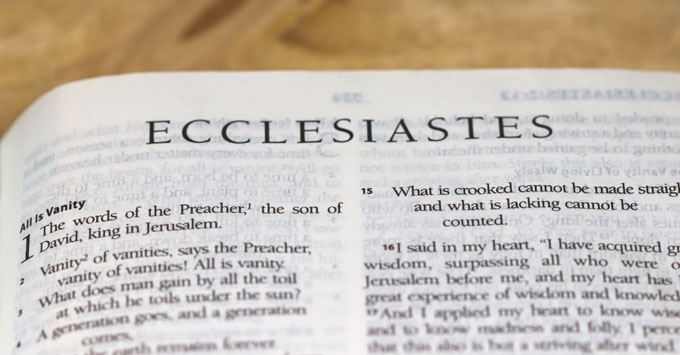Bedside manner works both ways. When John Steinbeck was hospitalized halfway through 1968, his doctor Denton Cox wrote on his chart, “The patient has sent me to Ecclesiastes,” a biblical book with the stoical view that the ultimate antidote for suffering is surrender. The physician followed the advice and Steinbeck was sent home, where he died in December. “What do I want in a doctor?” he asked in a letter he wrote to Cox at the beginning of their relationship: “Perhaps more than anything else—a friend with special knowledge.” Explaining his disbelief in “a hereafter” in clinical terms of “experience, observation and simple tissue feeling,” he went on to defend euthanasia, insisting “that the chief protagonist should have the right to judge his exit” when the time comes to let go and die. East of Eden, like Ecclesiastes, is a quotable book, and one medical news source says physicians should be more like Cox and pay attention to its message of empathy. A February 28, 2018 editorial in Medical News Report—a proprietary publication of Healthline Media UK Ltd.—quotes East of Eden to help contemporary healthcare professionals understand how empathy differs from sympathy, and why John Steinbeck continues to require medical attention, though of a different sort, today.
- Home
- Books
- Life
- Music & Media
- Places & Events
- Politics & Religion
- April 22, 2025
About John Steinbeck

Most read American writer of the 20th century. Born in California. Died in New York. Romantic. Realist. Rebel. More about John Steinbeck
FacebookTwitterLinkedInGoogle+ PinterestMySpaceStumbleUponYouTubeStay In Touch
Receive email updates and stay in touch with SteinbeckNow.com
Recent Posts
- New Video from San Jose State University on John Steinbeck: A Writer’s Vision
- Celebrate! Western Flyer Returns to Monterey Bay
- Henry Fonda’s Daughter, Jane Fonda, to Receive 2023 John Steinbeck Award
- A Chance Christmas Dinner with John Steinbeck in 1947
- Saved! John Steinbeck’s Retreat in Sag Harbor
- Celebrating Woody Guthrie’s Grapes of Wrath Connection
- John Steinbeck Haunts Malcolm Harris’s Palo Alto
- San Jose State Hosts Steinbeck Conference
- For John Steinbeck, the Rains in Pajaro Hit Home
- Photo Inspires Sumi Ink Portrait by Eugene Gregan
Latest Tweets
-
No tweets found.
- View All SteinbeckNow.com Tweets


The Steinbeck attitude expressed to Dr. Cox may be easier to understand if it were considered in the light of the Jungian thought that this existence is the illusion and reality is on the other side of the curtain. And I agree with Steinbeck. I suppose there is no surprise on that note.